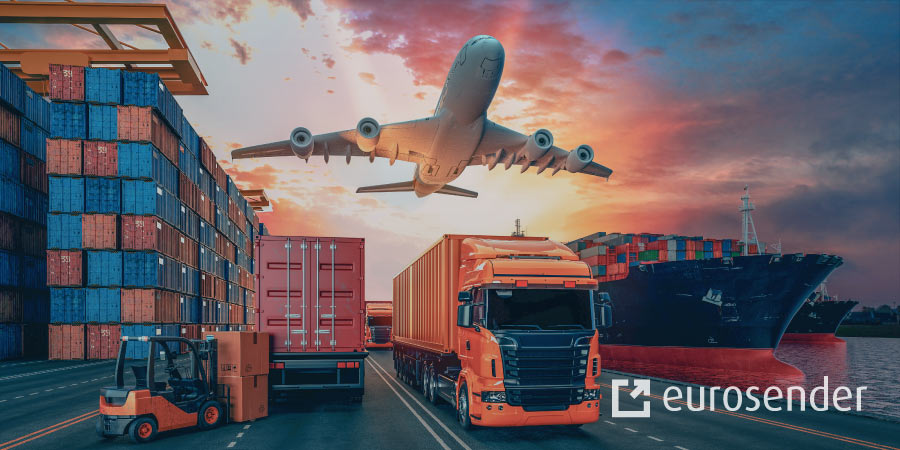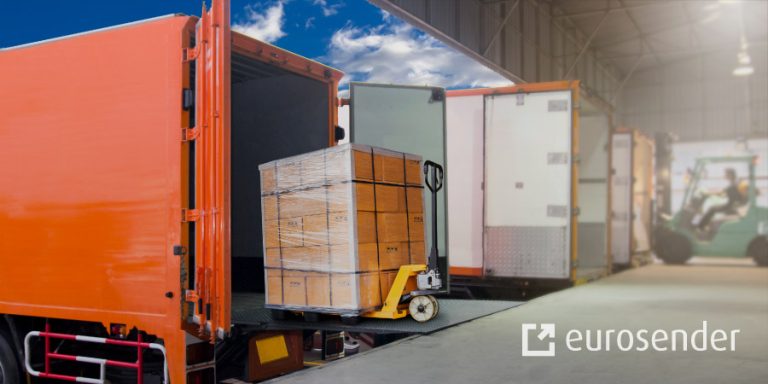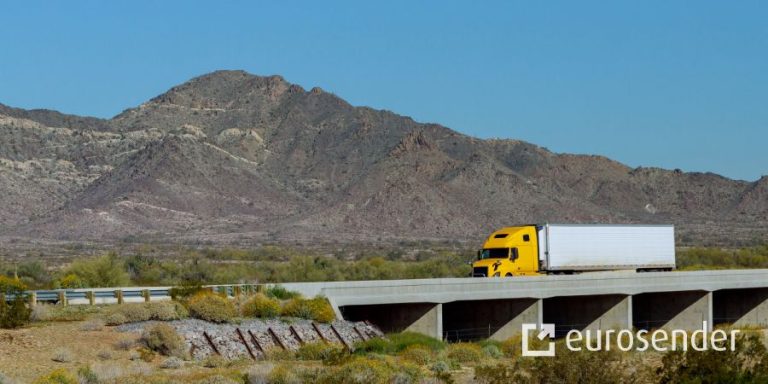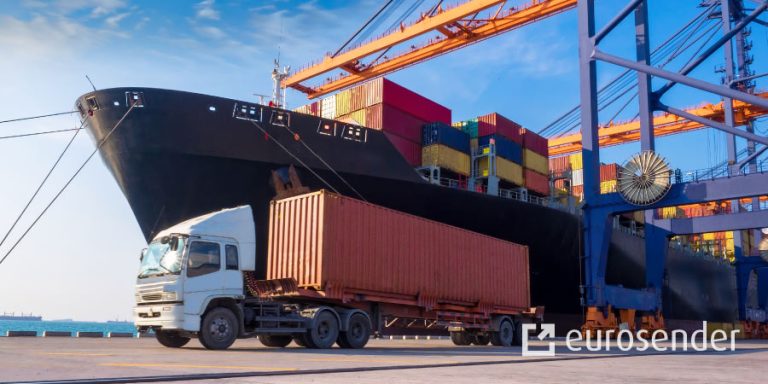1PL, 2PL, 3PL,4PL, 5PL: What’s the Difference?
TL;DR
- 1PL refers to companies managing their own logistics, with no third-party involvement.
- 2PL focuses on outsourcing transportation, where companies use external carriers like trucking or shipping services.
- 3PL offers a broader range of logistics services, including warehousing, packing, and inventory management, allowing businesses to outsource more tasks.
- 4PL and 5PL provide end-to-end logistics management, with 4PL overseeing the entire supply chain and 5PL managing multiple logistics networks for highly complex supply chains, typically used by larger companies.
When it comes to logistics partners, you have several options to choose from to meet your specific needs. These options are commonly referred to as logistics service models or party logistics (PL) models.
In this article, we will explain the differences between 1PL, 2PL, 3PL, 4PL, and 5PL logistics, and offer insights to help you determine which one is right for your business.
Create an account for free!
A brief overview of 1PL, 2PL, 3PL, 4PL, and 5PL
1PL: First-party logistics
A 1PL is a person or company managing all of its own logistics operations. It is the most basic logistics model and involves only two parties: the sender and the receiver. Unlike the other PL models, there is no middleman involved in 1PL.
1PL is commonly utilised by small production companies with local distribution, which allows them to handle logistics services on their own.
2PL: Second-party logistics
A 2PL is an asset-based carrier that provides transport solutions for businesses. Examples of 2PLs include airlines, shipping lines, and trucking companies.
2PLs are outsourced logistics providers and their role is limited to transporting goods, not manufacturing them. Retailers that manage fulfilment in-house will often use a 2PL to deliver goods to their final destination.
Read more: The best international logistics providers
3PL: Third-party logistics
A 3PL is a full-service logistics provider that handles more aspects of the supply chain including, but not limited to:
- Receiving
- Storing
- Packing
- Labelling
- Shipping
- Cross-docking
- Inventory management
- Kitting and customisation
- Returns (reverse logistics)
3PL providers act as intermediaries between businesses and carriers, managing the logistics of their supply chain to optimise efficiency, reduce costs, and enhance customer satisfaction.
Many successful medium-sized businesses use 3PL companies because then they can focus on other aspects of the business while entrusting their logistics needs to experienced professionals.
4PL: Fourth-party logistics
A 4PL offers everything that a 3PL does and more. They manage the entire supply chain for businesses and act as a single point of contact, coordinating and managing multiple 3PL providers, carriers, and other logistics partners to ensure seamless operations and optimal performance.
4PL providers leverage advanced technology and data analytics to provide businesses with real-time visibility and control over their supply chain, enabling them to make informed decisions and optimise their operations for maximum efficiency and profitability.
Read more: Advantages of 4PL
5PL: Fifth-party logistics
A 5PL is the most recent term in the logistics industry. It indicates a type of logistics service provider that offers an even more in-depth and comprehensive supply chain management solution than a 4PL provider. While a 4PL provider manages the entire supply chain for businesses, a 5PL provider goes one step further and manages the entire ecosystem of supply chains, including multiple 4PL providers, carriers, suppliers, and other logistics partners.
A 5PL provider acts as a single point of contact, coordinating and managing all logistics activities across the entire supply chain ecosystem, to optimise efficiency, reduce costs, and enhance customer satisfaction. Since 5PL providers offer the most comprehensive and integrated supply chain management solutions, using the most cutting-edge technology, they are typically used by large multinational corporations with complex supply chain operations.
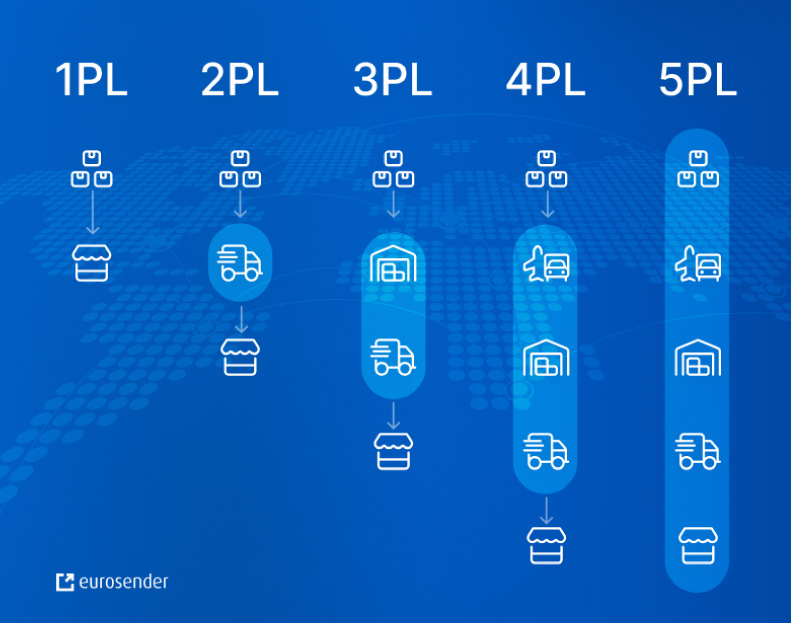
What are the main differences between 1PL, 2PL, 3PL, 4PL, and 5PL?
The difference between 1PL, 2PL, 3PL, 4PL and 5PL logistics lies in their services, based on their level of demand in a company. Let’s summarise the main characteristics of each PL:
- 1PL: The most basic type of logistics, only the cargo sender and receiver are involved.
- 2PL: The first step in outsourcing supply chain tasks, i.e. transport.
- 3PL: This level offers more supply chain services, from packing to returns logistics.
- 4PL: Logistics management is assigned to consulting companies that offer integration solutions to harmonise different aspects of the supply chain.
- 5PL: This provider specialises in managing highly complex supply chains and offers expertise in engineering and advanced flow automation systems to ensure seamless integration of all elements.
Read more comparisons:
- Difference between 3PL vs 4PL
- Difference between cargo vs freight
- Difference between carriers vs couriers
- Difference between carriers vs freight forwarders
- Difference between logistics vs freight forwarding
- Difference between freight forwarders vs freight brokers
How to choose between 1PL, 2PL, 3PL, 4PL, and 5PL for your business
As with all aspects of business, each type of PL has its advantages and disadvantages. The best option for your company will depend on your size and specific business requirements.
Small and medium enterprises (SMEs)
3PL providers are an excellent choice for SMEs seeking to optimise logistics processes and save money. With 3PL solutions, companies can create space for growth while receiving support for product shipments, warehousing, and logistics management.
Read more: 6 challenges faced by SMEs (& solutions)
Large businesses
Large businesses can benefit from different logistics solutions depending on their needs. 1PLs offer complete control over the supply chain, which is ideal for companies with existing infrastructure and high-volume needs. On the other hand, 4PLs or 5PLs can provide strategic insights and enable large companies to focus on other areas, such as product innovation or customer service.
Read more: Specialised logistics solutions
Are you looking for a reliable PL solution? Try Eurosender!
To make an informed decision, it is important to understand the differences between 1PL, 2PL, 3PL, 4PL, and 5PL logistics. With Eurosender, you will have access to a technology-driven 4PL platform that provides instant quotes for global door-to-door delivery services.
When you partner with us, you gain more than just access to a wide range of shipping options. Our platform provides you with a personalised dashboard, granting you a comprehensive view of your shipments and processes. This level of control and visibility empowers you to manage your logistics operation seamlessly – all with a simple few clicks. And the best part? We offer this convenience and peace of mind without any binding contract!
So, if you’re seeking a reliable PL solution, don’t hesitate to give Eurosender a try. Experience the ease, control, and flexibility that comes with our personalised dashboard and let us revolutionise your logistics experience.
Want to know more?
Check our articles that explore different topics within the logistics industry.
Create an account for free!
About the author
